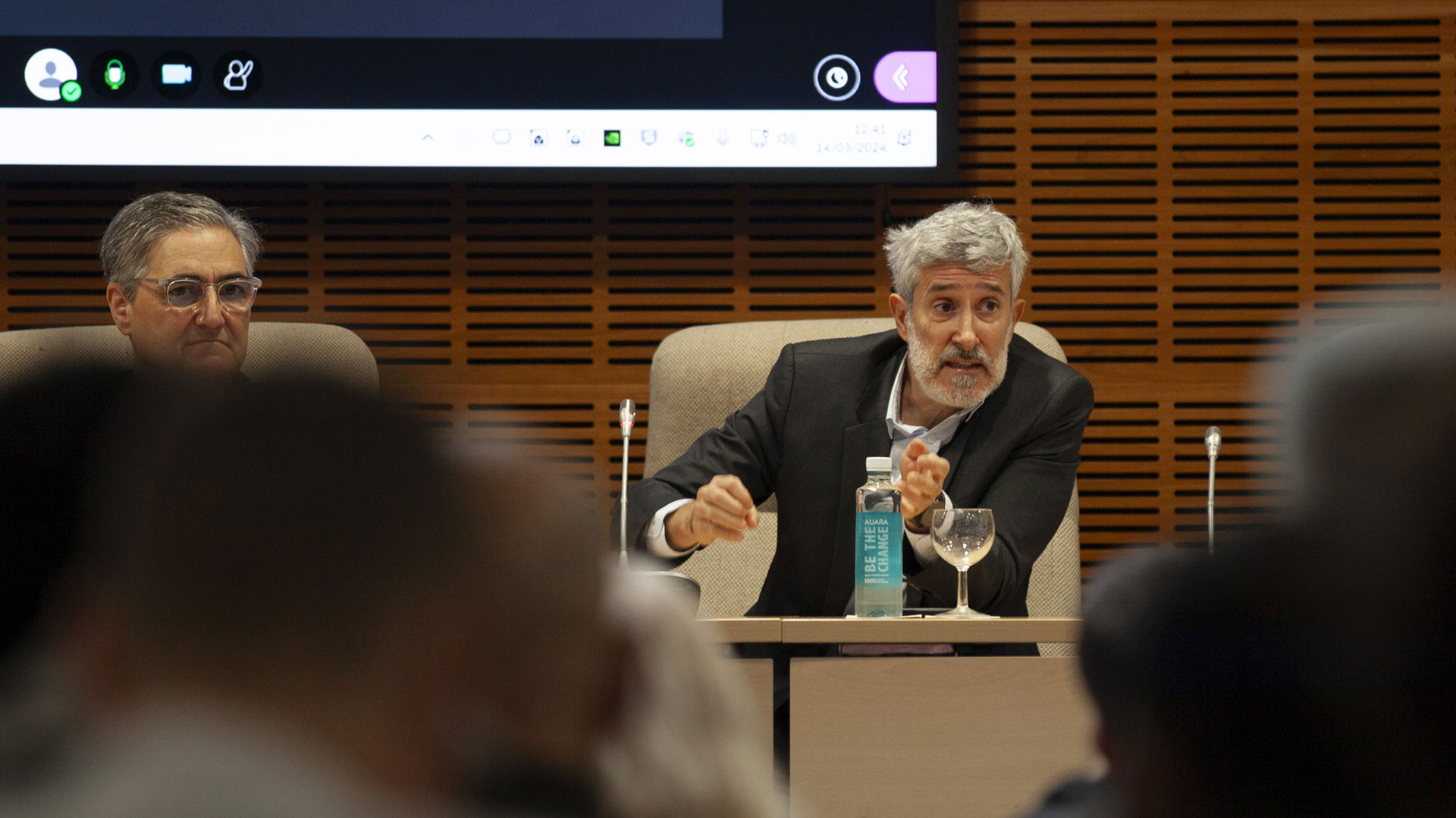- Press
- Press releases
- The biggest challenge for sustainable …
The biggest challenge for sustainable mobility lies in a change in citizens' behavior

- The new Kapsch Chair for Sustainable and Intelligent Mobility discussed the challenges in the field of mobility research
Madrid, April 3, 2024 – The cooperation with renowned Spanish university Comillas, that was announced in autumn last year, was officially kicked off with the official presentation of the new Kapsch Chair for Sustainable and Intelligent Mobility on March 14. It will be tasked with analyzing the challenges of research for sustainable mobility.
Antonio Muñoz, Director of Comillas ICAI and Alfredo Escriba, CTO at Kapsch TrafficCom, presented the Chair and highlighted the importance of it for examining, analyzing, and proposing cutting-edge policy designs for sustainable mobility.
In the following panel discussion, several experts from different universities and companies stressed that, of all the challenges that must be overcome to achieve sustainable mobility, the most complex is the change in citizens' behavior towards mobility and transport.
"The most important thing is to change some behaviors and suggest technological or infrastructure improvements that make it easier, because that is the most complex part", said Irene Álvarez de Miranda, from INGEROP T3, who stressed that "the decarbonization of mobility does not only depend on changing energy sources or being more efficient, but also on changing distances. The real smart city must work with its resources, not only develop new technologies."
Alfredo Escribá, CTO of KapschTrafficCom AG, referred to demand management, rather than road capacity supply, as one of the key solutions to mobility problems, and wondered how far we can influence the behavior of transport users, for which it is essential to “approach it all from a scientific direction” with proper experiments and analysis – even with the help of artificial intelligence to aid decision-making, as Antonio Muñoz, director of Comillas ICAI, mentioned.
In this sense, Ibon Galarraga, CEO of Metroeconómica, also referred to demand management and the gaps that exist in research and public policies regarding people's behavior towards mobility. “It is a mistake to want to design one policy when several are needed”, he said, wondering how to get citizens to accept approaches such as those that suggest charging a fee to enter cities by car.
Taxation was a big topic. Its acceptability is important for behavior”, said María Eugenia López-Lambas of the Universidad Politécnica de Madrid, although difficulties such as social inequality arise. Natalia Collado of ESADE EcPol also reflected on this, asking how technology and social inequality influence behavior. "Infrastructure conditions, and not only in terms of regulation or taxation".
The lecturer at Comillas ICAI, Pedro Linares, acknowledged that in order to answer all the questions and challenges regarding sustainable mobility and transport management a transversal vision is needed, hence the importance of a chair such as this one on sustainable and intelligent mobility, “which aims to bring together knowledge of engineering, economics and consumer behavior to find the most efficient and also the fairest solutions to achieve a more sustainable mobility.”
Kapsch TrafficCom is a globally renowned provider of transportation solutions for sustainable mobility with successful projects in more than 50 countries. Innovative solutions in the application fields of tolling, tolling services, traffic management and demand management contribute to a healthy world without congestion.
With one-stop-shop solutions, the company covers the entire value chain of customers, from components to design and implementation to the operation of systems.
Kapsch TrafficCom, headquartered in Vienna, has subsidiaries and branches in more than 25 countries and is listed in the Prime Market segment of the Vienna Stock Exchange (ticker symbol: KTCG). In its 2022/23 financial year, about 4,000 employees generated revenues of EUR 553 million.